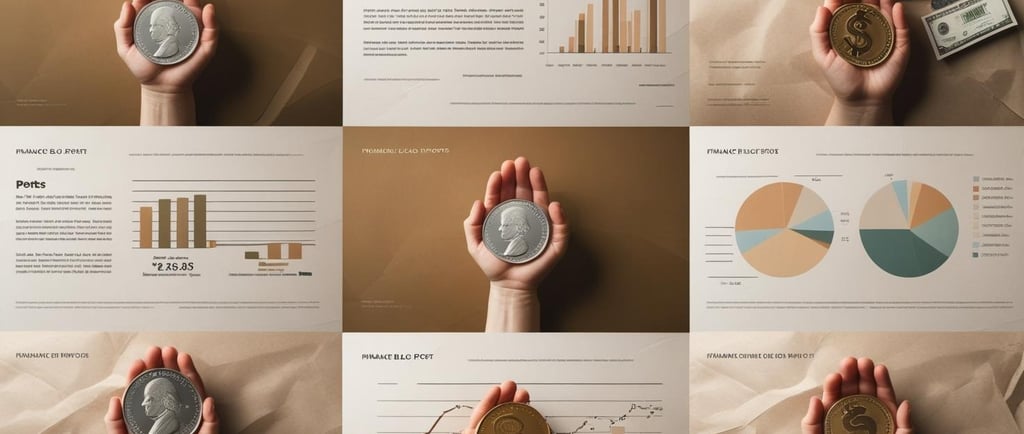How to Build Credit Score in the USA (Even If You’re Just Starting)
New to credit? Learn how to build a strong credit score in the USA — fast and from scratch. Discover smart tips, powerful tools, and beginner-friendly strategies that actually work in 2025.
Adil Aslam. — Founder of Finovista
5/8/20243 min read


How to Build Credit Score in the USA (Even If You’re Just Starting)
If you're living in the U.S. and want financial freedom — whether that’s getting approved for a credit card, renting an apartment, or buying your first car — you’ll need a good credit score. But what if you’re just starting out? Don’t worry. Building a credit score in the USA might seem complicated, but it’s totally doable — even if you have zero credit history.
In this post, we’ll break it all down in simple steps and help you start building credit the smart way.
🔍 What is a Credit Score and Why Does It Matter?
A credit score is a three-digit number ranging from 300 to 850, used by lenders to evaluate how risky it would be to lend you money. The higher your score, the better your chances of being approved for loans, credit cards, or even housing.
Here’s how credit scores are usually rated:
800 – 850: Excellent
740 – 799: Very Good
670 – 739: Good
580 – 669: Fair
300 – 579: Poor
Having no credit is different from having bad credit — and that’s a good thing if you’re just starting. You’re a clean slate!
🛠️ Step-by-Step: How to Start Building Credit from Scratch
Let’s get into the most effective (and beginner-friendly) ways to build your credit score in the U.S.
1. Apply for a Secured Credit Card
If you’ve never had a credit card before, a secured credit card is the best place to start. It’s backed by a cash deposit you make upfront (usually $200–$500), which acts as your credit limit.
💡 Pro Tip: Use it for small monthly expenses (like Netflix or gas) and pay it off in full each month. This builds trust with lenders and positively affects your score.
2. Become an Authorized User
Ask a family member or friend with good credit if you can be added to their credit card as an authorized user. You don’t even have to use the card — their responsible behavior will reflect on your report.
✅ Make sure the card issuer reports authorized users to the credit bureaus (Experian, Equifax, and TransUnion).
3. Pay All Bills on Time (Even Small Ones)
Your payment history makes up 35% of your credit score. So always pay your:
Credit card bills
Student loans
Utility bills
Rent (if reported)
Even one missed payment can set you back months.
4. Use Only a Small Amount of Your Credit (Utilization)
Let’s say your credit card limit is $500. Try to spend no more than $150 at a time. That’s a 30% utilization rate — which is considered healthy.
The lower your utilization, the better. Under 10% is ideal.
5. Avoid Opening Too Many Accounts at Once
Every time you apply for credit, a hard inquiry is added to your credit report. Too many in a short time looks risky to lenders.
🛑 Don’t apply for multiple credit cards in one go. Space them out — and only apply when you need to.
6. Check Your Credit Reports Regularly
You’re entitled to one free credit report per year from each of the three major bureaus.
👉 Visit AnnualCreditReport.com to check your reports and spot errors that could be hurting your score.
🧠 How Long Does It Take to Build Credit?
Usually, it takes 3 to 6 months of responsible credit usage to generate a score. Getting to a “Good” score may take 12 to 18 months — but the key is consistency.
Remember: It’s a marathon, not a sprint.
❌ Common Credit-Building Mistakes to Avoid
Paying only the minimum – Always pay your full balance if you can
Closing your first credit card too soon – Age of credit is important
Missing a single payment – It can stay on your report for 7 years
Carrying high balances – High credit utilization hurts your score
Thinking debit cards help your credit – They don’t
💳 Best Beginner Credit Cards in the USA (2025 Picks)
If you’re starting out, these cards are great for building credit:
Discover it® Secured
Capital One Platinum Secured
Chime Credit Builder Visa® Card
Petal® 1 “No Annual Fee” Visa
Always compare interest rates, fees, and rewards before applying.
📈 Tools That Help Build Credit
Here are some helpful services to speed up your credit growth:
Experian Boost – Adds on-time utility payments to your credit file
Self Credit Builder Account – Build credit and save money
Credit Karma – Track your score and get personalized tips (free)
📌 Final Thoughts: Credit Building is a Long-Term Game
Building credit in the U.S. doesn’t have to be confusing — you just need to take small, smart steps. Whether you’re new to the credit world or starting over, the strategies above will help you establish a strong financial foundation.
Start now — your future self will thank you.
Finance
Your go-to source for smart finance tips.
Blog
Tips
+1 (646) 555-0198
© 2025. All rights reserved.